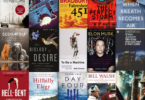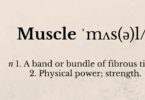Once upon a time, the worst thing you could say about materialism was that it encouraged people to fill their gaping internal voids with stuff instead of meaning or values or personal relationship, directly contributing to the decimation of the Earth’s resources without actually making anyone any happier. These days, we’ve got bigger problems.
You can thank Marie Kondo or capitalism, but now we’re too smart to collect things and not experiences, at least if we’ve watched enough Hoarders. We’ve ruthlessly pruned everything out of our lives and wardrobes that doesn’t bring us joy, and we’re ready to march forward into the Age Of Aquarius with nothing but our laptops, equipped with Spotify and Netflix but maybe packing an external hard drive pre-loaded with HBO shows just in case. Nobody needs a DVD collection any more, but holy shit man you haven’t heard the latest Tim Ferriss podcast? Keep up broseph, your brain-vault’s looking kind of empty. Maybe you should subscribe to Amazon Prime and a bunch of true-crime podcasts, just to make it look lived-in.
I can’t call this Intellectual or Cultural Materialism because those terms are already wedded to concepts I barely understand, but please believe this: Streaming Service Materialism exists, and it is driving you insane. As always, things come back to evolution, in the strictest sense of replicating entities competing for space in a resource-scarce environment: capitalism, the media, even the decadent West might not want you to do anything, but a bunch of companies and their executives have needs and third-quarter targets, and those inconveniently align with jamming your brain-space so full that you can’t fucking move. Also: technically this works better than traditional materialism, because at the end of the day these companies aren’t giving away any materials, they’re just spending millions and millions of dollars fine-tuning their algorithms to make sure the Watch Next button never goes unclicked. Also also: almost nobody, anywhere in the 7 Things You Should Have Seen By Now ecosphere, has any incentive to tell you to stop. You can write one article about Why Everyone Should Watch Less TV, but you can’t write one a week, that’s why this blog never updates. You can play Have-You-Seen…? Tennis with half of your office until the HR department sends around a sharply-worded email, but if you say something about preferring to spend time outside or alone, you’re instantly the asshole.
Well, here’s one asshole, telling you: stop. There is no such thing as must-see TV. You should not endeavour to fill every minute of your day, every mental crevice, with triple-A titles or award-winning documentaries or even TED talks and podcasts, just because you can. Stop, stop, stop.
Here’s how to start.
Start with the time you’re willing to invest, not the shows you have to watch
This is just the same as walking into a casino with all the money you’re prepared to bet in one pocket: it makes sure things don’t spiral out of control. I watch one hour of TV a night – at most – and a couple of films at weekends. If something doesn’t fit into that schedule – it doesn’t get watched. If something comes along that I really, really want to watch, it knocks something else out, or it gets watched later. Starting with all the things your friends/colleagues/favourite websites/streaming service recommend and then trying to fit them all in is straight-up insanity. Start with the time, then work out how to fit the viewing in.
Don’t watch shows until they’re done
This takes patience and a willingness to be ostracised in office conversation, but it’s all you really need. I can’t explain it any better than The Wire’s David Simon: “I tend not to watch shows until they finish and then somebody will come to me and say, ‘No, no, they knew what they were doing, they knew where they were going’, and so I’ll be sticking in DVDs or downloads two years after something’s on the air. Nothing’s worse than giving eight hours, to find out, boy, that was a great idea but those guys really didn’t have a plan… so I end up taking the guesswork out of it by being late to everything.’ Something gets spoilered? Congratulations, now you don’t have to watch it: if a show’s only worth seeing for the mid-season mega-twist, maybe it wasn’t worth watching in the first place.
Refuse to watch things that aren’t good from the beginning
‘But it really kicks in around episode five.’ Oh, so I should drop the time commitment of a medium-sized book into something because I might like it later? Hard pass. Glengarry Glen Ross manages to establish the stakes, make you care about the characters, and learn everyone’s name in the first twenty minutes, and that’s a film about seven dudes in an office talking. Fuck your slow burn.
Stop watching things when they go bad
This is basic sunk cost theory: just because you’ve already invested forty hours of life into a show doesn’t mean you have to keep watching as it congeals. ‘But I want to know how it ends.’ Just make something up, it’s a work of fiction and you have an imagination, you used to be able to do this when you were a kid. Maybe Carl grows up to marry Negan and they go on to find a cure for the zombie virus together? The main thing is, it’s all going to be fine.
If you don’t have time to think, keep chopping until you do
Here’s a parallel with lifting that I don’t think is completely crazy: you don’t get stronger in the gym, you get stronger by recovering from what you do in the gym. However many podcasts you listen to, thought provoking documentaries you watch, or self-help books you read, none of them are going to help if you don’t give the ideas time to bed in, space to swirl around your brain and connect the dots with the stuff that’s already there. How much time is enough for this? I don’t know, but even twenty minutes a day where I’m not wired in seems to give my brain the breathing space to come up with my own ideas: time where I’m not hanging out with anyone else or ingesting any form of culture, but just walking around, staring out of a window or sitting somewhere outdoors with a coffee. If this isn’t something you have in your day, I’d suggest chopping other stuff out – yeah, including music – to get it done. And if you do it and don’t find yourself coming up with new ideas, feeling more mentally refreshed, bursting to get stuff done – you probably aren’t doing it enough.
The world is amazing, now. You can watch or listen to anything you want, for almost no money, instantly.
But you don’t have to.
HOMEWORK: Decide on how many nightly TV hours you’re willing to invest this week: it can be one or six, as long as you pick a number. Aim to spend at least ten minutes a day with no mental stimulation of any kind: no podcast while you walk, no music, no nothing. Stick to it.







Leave a Comment